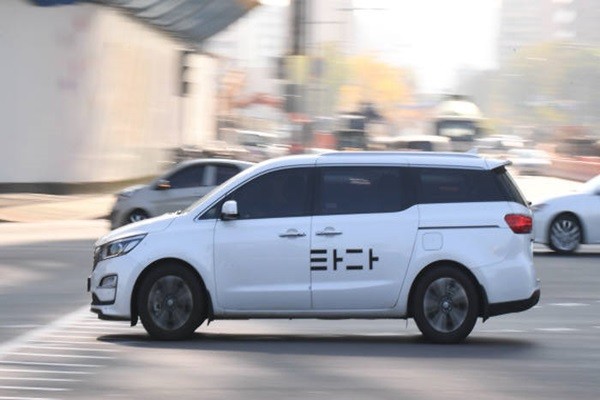As platforms that provide services such as delivery agency, quick shipping, and chauffeur service start to become on demand and O2O (Online to Offline), there is a huge confusion regarding recognizing ‘nature of employee’ of employees of these service platforms. Controversy started when Seoul Employment and Labor Administration’s Northern Office made a judgement that recognizes few delivery people that work for Yogiyo’s subsidiary as workers and when South Korean prosecutors mentioned during an arraignment for a South Korean mobility service ‘Tada’ that a driver that works for Tada had received actual supervision from Tada. Based on the current South Korean law, definition and standard on workers of service platforms are not clear yet. Different decisions by South Korean courts are made depending on individual case.
“Based on how the supreme court sees workers, we need to individually look at a job type and contract information.” said Ministry of Employment and Labor (MOEL) regarding a case involving Yogiyo. “Regarding Yogiyo’s case, there are few differences compared to the actual state of work of general delivery agencies.” Regarding 5 people who had their ‘nature of employee’ recognized, Seoul Employment and Labor Administration’s Northern Office made its decision based on the fact that they were paid hourly wages, had their gas bill for Yogiyo’s motorcycles that were rented to them at no cost paid by Yogiyo, and had their working hour and location set up by Yogiyo and had to report their commuting times to Yogiyo.
According to an investigation by Korea Employment Information Service (KEIS), it is estimated that there are up to 540,000 platform economy workers in South Korea. Based on its definition, chauffeur application, delivery application, housekeeper application, and business requests such as design, accounting, moving, and translation are included. Range of applicable subjects becomes even wider as people with two jobs and part-time jobs are also included. As a result, some say that there needs to be a standard that decides whether platforms and labor suppliers have an employment relationship or a contract relationship.
In case of South Korea’s precedent, there was a case in 2015 when it was assumed that a delivery person of a delivery application was not considered as a worker. This decision was made mainly on whether a delivery person had a right to decide accepting a delivery order when a request for an order comes through an application. Although the supreme court threw out the decision made in 2015 by judging that a delivery person is considered as a worker in special employment types based on Occupational Health and Safety Insurance Act, it maintained the fact that a delivery person is not considered as a worker based on the Labor Standards Act.

Information gets even more complicated as conditions are different for Tada’s case. Tada is only able to recommend a driver as it operates mobility business as a rent car company. It is not possible for Tada to directly hire a driver based on the current law. As a result, a driver can be either a freelancer or an agency worker when he or she starts working. Agency drivers have fixed commuting time and working location and receive set wages. On the other hand, freelancing drivers can set their commuting time on their own and earn money based on their working hours.
One of differences between the precedent in 2015 and Tada’s case is the fact that a driver’s standby location is managed through GPS information from a driver’s Smartphone. Driver’s current location and situation can be seen as detailed direction and supervision. Socar states that direction and supervision are inevitable to prevent abusing by its drivers.
This issue arises because Tada guarantees wages per hour rather than commission per case. Actually, there was a similar issue when ‘Uber Eats’ was launched in South Korea in 2017. To secure drivers, Uber paid drivers additional incentives during standby time in addition to commission per each delivery. Few Uber Eats delivery people had abused additional incentives by waiting in areas where there were no orders. If Tada introduces a commission per delivery system rather than hourly system, it will have less strengths than a regular taxi. It is difficult to solve problems such as reckless driving and refusal of passengers done by few drivers to earn more money.
Socar’s position is that direction and supervision on a freelancing driver itself is not a problem. It also sees that there are more demands for freelancing driver that relatively has a flexible working hour. It emphasizes the fact that there are more benefits to work with right conditions rather than stable jobs in case of people who have main jobs or workers from cultural arts industry. According to Lee Jung-mi, who is a member of Justice Party, Tada currently has 9,000 drivers where 600 of them come from 5 agencies and 8,400 freelancing drivers from 22 service companies.
“Although it is regrettable that freelancing drivers cannot receive four major insurance policies, this is not a problem that we can solve on our own.” said a representative for Socar. “Just like a case when a worker in special employment types received occupational health and safety insurance, we have every intention to participate as long as there are social discussions for improving systems.”
Staff Reporter Lee, Hyungdu | dudu@etnews.com